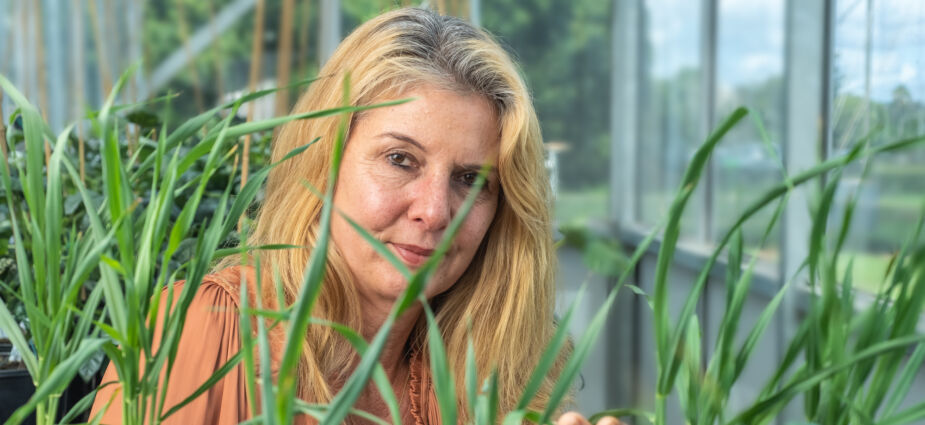Each year, plant pathogens cause millions of dollars in damage to Australia’s barley crops, attacking roots, stems and leaves. Now a new project, led by the University of Southern Queensland’s Associate Professor Anke Martin, is set to equip Australian barley growers with novel biological and genetic tools to aid in their fight against a fungal disease that has caused $177 million in yield losses each year for the Australian barley industry.
The team, made up of scientists from across Australia, has been awarded a $586,728 Australian Research Council (ARC) Linkage Grant plus $320,000 from the industry partner InterGrain Pty Ltd to help in the development of disease resistant barley varieties, which will be used to prevent crop loss and grow the Australian barley industry.
The team will also study potential resistance genes which could be incorporated into Australian barley varieties and will investigate the techniques to identify virulence genes in the fungus. Associate Professor Martin said improving the resistance of barley crops would have wide reaching benefits. “We are hoping that by the end of the project, the breeders working with us will release a barley variety which has durable resistance,” she said.
“Durable resistance will provide breeders with a significant long-term advantage, reducing pathogen impact and the need for chemical inputs, improving yield and profitability for the grower and enhancing food security. Reduced use of chemicals will lead to a safer work environment for the grower and the nation as a whole.”
The outcomes of this research will be valuable new knowledge and biological and genetic resources to guide the Australian barley breeding community into providing long term protection of this important Australian crop from disease losses. Read more about the University of Southern Queensland’s Centre for Crop Health.
Readers also enjoyed our story about Paris Thomson: SIRAP












